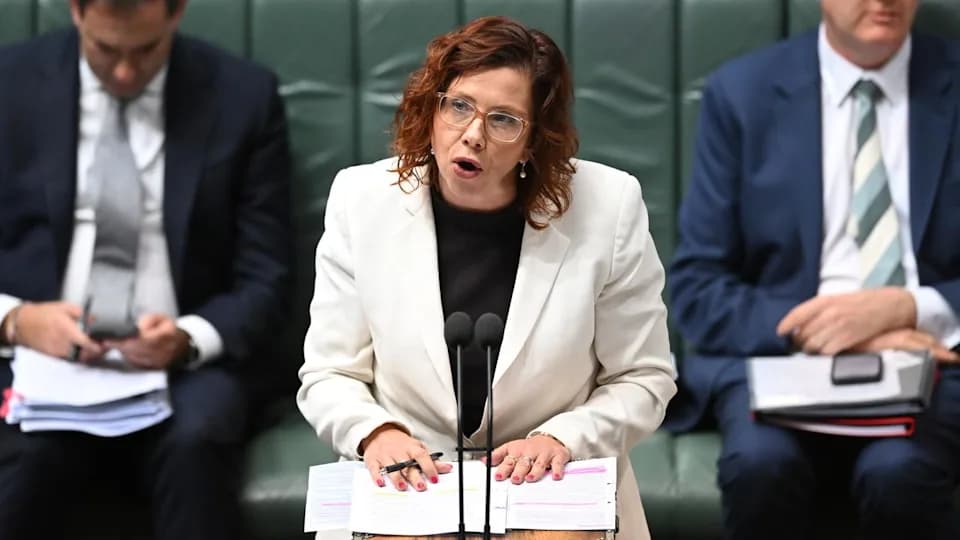We're loading the full news article for you. This includes the article content, images, author information, and related articles.
Canberra's ruling Labor party is under intense political pressure over its handling of a major trade union inquiry and controversial disability support reforms, highlighting universal challenges in governance and social policy.

CANBERRA – On Monday, 27 October 2025, the Australian government, led by Prime Minister Anthony Albanese, faced a barrage of criticism in Parliament over two contentious national issues: the ongoing administration of a powerful trade union and significant reforms to the nation's disability support scheme. The debates, which unfolded during the daily 'Question Time'—a key feature of Westminster-style parliaments for holding the government to account—have placed a spotlight on the administration's handling of industrial relations and social welfare, issues with resonance far beyond Australia's borders.
At the heart of the political storm is the government's oversight of the Construction, Forestry, and Maritime Employees Union (CFMEU), one of Australia's largest and most influential blue-collar unions. The union's construction division was forced into administration in 2024 by the Albanese government itself, following serious allegations of criminal infiltration and misconduct. However, the opposition Coalition is now demanding a formal parliamentary inquiry into the administrator's work, citing reports that the effort to root out corruption has been ineffective.
Leading the charge, Opposition Leader Sussan Ley questioned the government's commitment to cleaning up the union. Reports from Nine newspapers alleged that the administrator, Mark Irving KC, had disbanded anti-corruption teams and that investigative efforts were hampered by inadequate powers. "It's very hard to see how the CFMEU is going to be fixed when you have an administrator in place that seems to be running interference to protect the existing power structures," stated opposition industrial relations spokesman Tim Wilson on Monday.
In response, Minister for Employment and Workplace Relations, Amanda Rishworth, defended the government's position, stating there is "no tolerance" for criminal conduct. She asserted that the administrator is "absolutely committed to clean out this union" and has already taken significant steps, including the removal or resignation of over 60 staff members, many in leadership positions. The government maintains that the administration process is robust, a stance supported by a High Court decision in June 2025 that dismissed a CFMEU challenge to the government's intervention.
While the government parried attacks over the CFMEU, it faced simultaneous pressure from citizen groups over planned changes to the National Disability Insurance Scheme (NDIS). The NDIS is a comprehensive, government-funded program that provides support to hundreds of thousands of Australians with permanent and significant disabilities. Protesters gathered in front of Parliament House on Monday morning to voice their opposition to the reforms.
Announced in August 2025 by Health Minister Mark Butler, the changes include the creation of a new $2 billion 'Thriving Kids' program. This initiative will divert children with mild to moderate developmental delays and autism away from the individualized funding packages of the NDIS and onto state-run support programs. The government argues this will make the NDIS, which is forecast to cost over $44 billion in 2025-26, more financially sustainable and return it to its original intent.
However, the move has been met with fierce resistance from disability advocates, who fear it is a cost-cutting measure that will leave vulnerable children without essential support. Greens Senator and disability rights advocate Jordon Steele-John, who joined the rally, accused successive governments of undermining the scheme. Steele-John, who has cerebral palsy, has been a vocal critic, arguing that support systems must meet community needs rather than political expediency. Advocates have consistently called for greater consultation, warning that changes could be traumatizing for participants and their families.
While deeply rooted in Australian domestic politics, the dual controversies facing the Albanese government touch on themes of global relevance. The struggle over the CFMEU highlights the complex relationship between governments, powerful labor movements, and the challenge of ensuring accountability and stamping out corruption—an issue pertinent to democracies worldwide, including Kenya, where the role and governance of unions are frequent topics of public debate.
Similarly, the debate over NDIS reform reflects a universal challenge: how to balance the compassionate aims of social welfare programs with their long-term fiscal sustainability. As nations across the globe, including those in East Africa, work to build and refine their social safety nets, the Australian experience serves as a compelling case study in the political, economic, and social difficulties of reforming large-scale public support systems. The outcomes of these debates in Canberra will likely be watched closely by policymakers far beyond Australia's shores.
Keep the conversation in one place—threads here stay linked to the story and in the forums.
Sign in to start a discussion
Start a conversation about this story and keep it linked here.
Other hot threads
E-sports and Gaming Community in Kenya
Active 9 months ago
The Role of Technology in Modern Agriculture (AgriTech)
Active 9 months ago
Popular Recreational Activities Across Counties
Active 9 months ago
Investing in Youth Sports Development Programs
Active 9 months ago